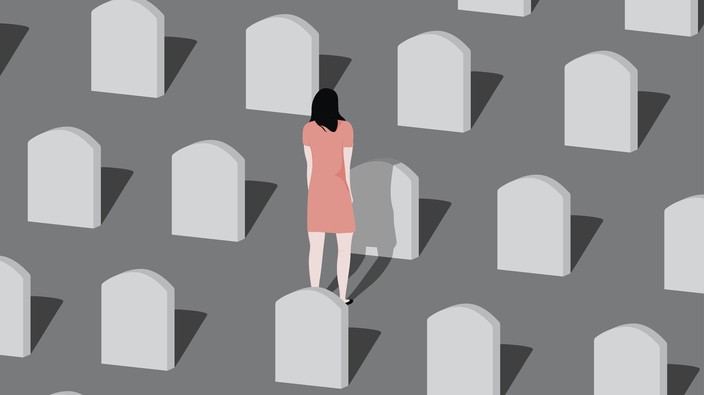covid-19 has had a shocking impact on the world. from economic devastation to mental health consequences, the virus has permeated our lives in ways we have only just begun to recognize. and while we recognize the consequences of death — of course we understand loss — taking a closer look at the ripple effect that the loss of one person has adds a whole other dimension to what it means to lose someone to covid-19.
a new study from u.s. researchers, takes a look at exactly that. if you take the number of deaths from covid-19 in the u.s. and multiply that by 8.91, that means that as of july 16, 1,204,943 americans are grieving. it’s called the “bereavement multiplier,” and it measures the number of people affected by one covid death.published in the proceedings of the national academy of sciences, the study looked at “kinship networks” and the social consequences of a health crises. the networks included grandparents, parents, siblings, spouses and children.researchers noted slight differences in the bereavement multiplier between black and white americans, at 9.18 and 8.86, respectively.some of the implications of covid-19 mortality included people facing death at a younger ages, as well as the loss of caretakers, which impacts children in families.“there are a substantial number of people who may be losing parents that we would consider younger adults and a substantial number of people may be losing spouses who are in their 50s or 60s,” said ashton verdery, lead author of the study and an associate professor of sociology, demography and social data analytics at penn state university, in a statement. “there could also be some implications for caretaking. for example, a lot of children grow up in grandparent-led houses and they would be impacted.”verdery said the study should bring attention to policies around extensions for family leave and paid leave.
 2 minute read
2 minute read









